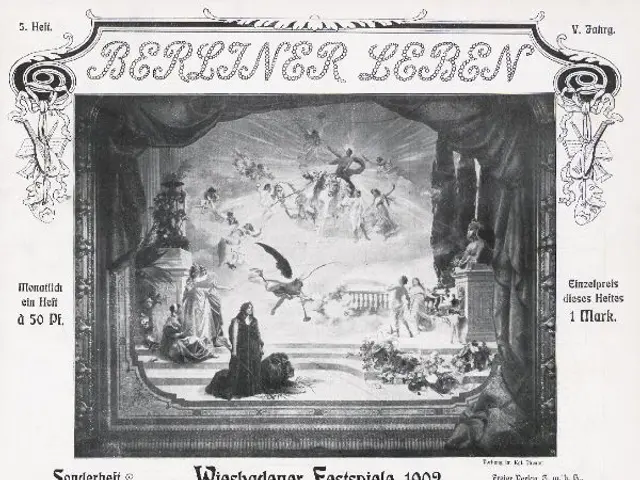A Tale of a Crocodile and a Goldfish: Pursuit of Gold
In the world of late-night television, a significant shift has taken place. Jimmy Kimmel, born in 1967 in New York, has announced his departure from his long-running show "Jimmy Kimmel Live!", a programme he has hosted for 23 consecutive seasons.
The show, which made its debut in 2003, has been a staple in American television, often pushing boundaries and offering a unique blend of comedy and political commentary. However, this departure has shed light on political-media connections in the U.S., as well as the delicate balance between free speech and public discourse.
Kimmel's show has been broadcast in a society where freedom of speech is traditionally valued. Yet, the political figures who have spoken against Kimmel and threatened to end his show include former President Donald Trump, Attorney General Pam Bondi, Secretary of State Marco Rubio, and White House Deputy Chief of Staff Stephen Miller. Trump, in particular, praised ABC's decision to cancel the show and called for other late-night shows hosted by Jimmy Fallon and Seth Meyers to be cancelled.
The catalyst for Kimmel's removal from the lineup was not due to his Trump joke, but rather Trump's display of grief for conservative commentator Charlie Kirk, which Kimmel criticised. "That's not what it looks like when an adult mourns someone they call a friend. That's what it looks like when a four-year-old mourns their goldfish," Kimmel remarked.
Trump's tweets about Kimmel's show ending before it actually happened, and FCC chairman Brendan Carr, a Trump appointee, threatening ABC's broadcast partners regarding Kimmel's show, further fueled speculation about the political implications of Kimmel's departure.
Kimmel's exit from his show has sparked a debate about the role of comedy in political discourse and the blurred lines between entertainment and politics. Differing opinions in the U.S. are sometimes viewed as hostile acts, and this incident serves as a reminder of the political-media connections that exist in the country.
As for the future of late-night television, it seems Trump is planning to target Jimmy Fallon and Seth Meyers next. MAGA followers have attempted to divert attention from this possibility, but the impact of Kimmel's departure on the landscape of American television remains to be seen.
Kimmel's departure from his show marks the end of an era in late-night television, but it also serves as a starting point for a conversation about the role of comedy in political discourse and the delicate balance between free speech and public discourse in the U.S.
Read also:
- Mohammad Yousuf publically labeled Suryakumar Yadav as a "pig," an unusual slur Yousuf explained.
- Today's most impactful photographic moments
- Support for Eric Adams in The Post's Letters to the Editor on August 13, 2025
- Roosting Shark and Rambunctious Red Squirrels: Unconventional House Rental in Yorkshire Involving Aquatic Marvel, Squirrely Mayhem, and Mystical Planning Regulations








